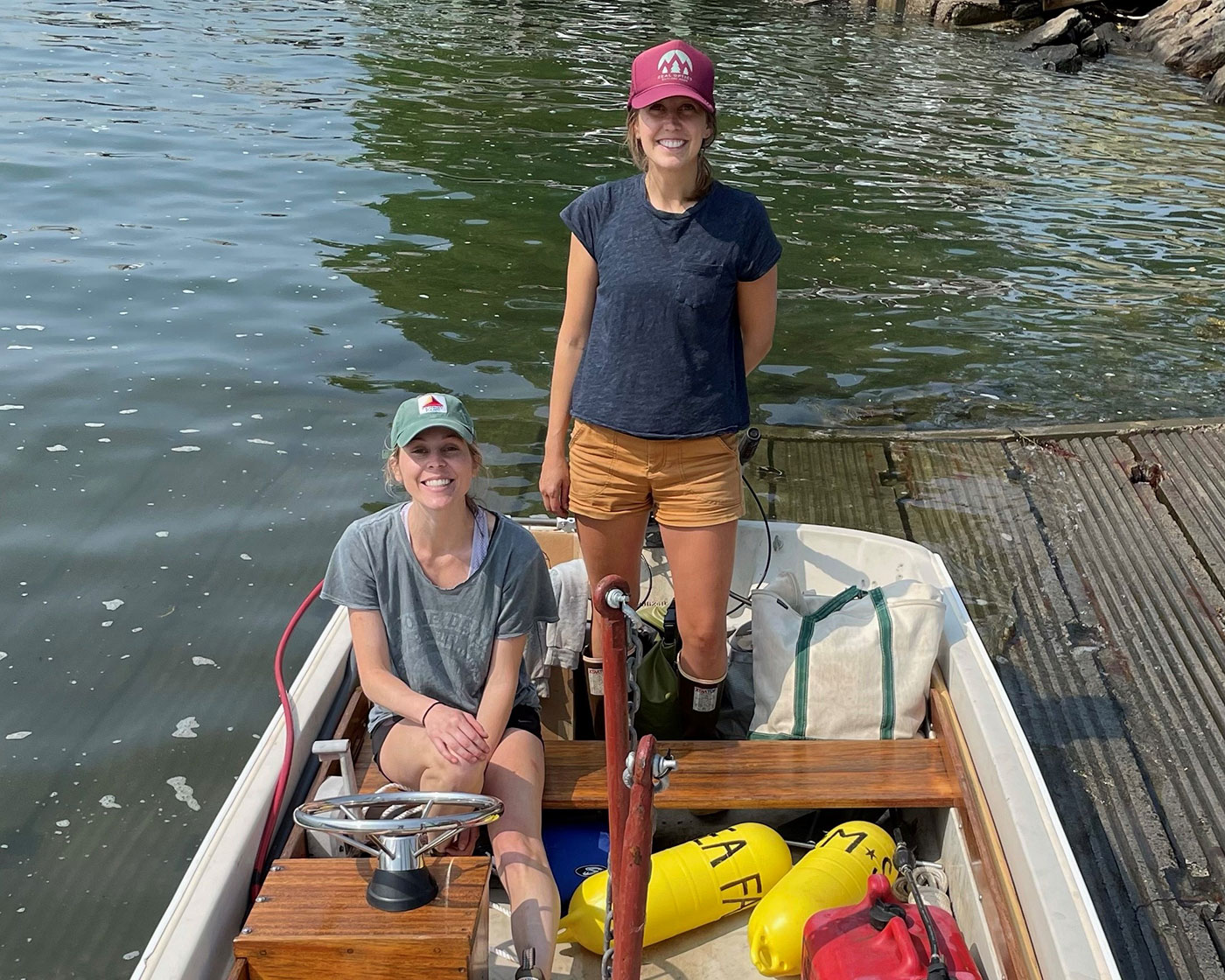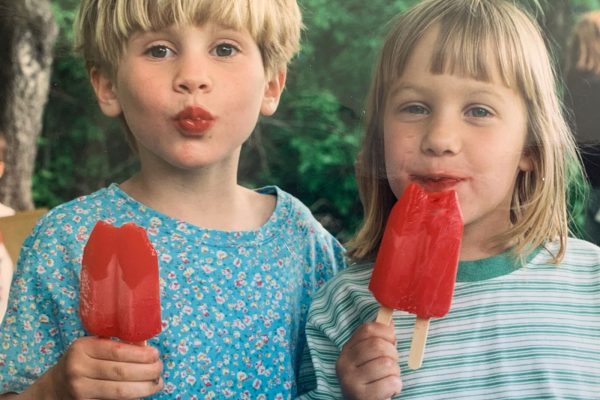Over the past year and a half, we have all been forced to rethink our life’s priorities, for better or for worse. Some got in touch with activities they had put aside years ago — music, art, reading, exercise, cooking — some picked up entirely new activities, some found a new love of working from home, some missed their communal work settings, some didn’t stop working at all, and many lost the work they held. No matter where we fall in this spectrum, we were all forced to think, to be creative, and to be adaptable. This is something we can all be proud of.
I’d like to share my “COVID project” with you because it’s something I’m excited about as I am taking a leap of courage and tapping into a deep well of creativity.
This project — maybe I should start calling it a job — is the culmination of many passions including logging time on the beautiful Gulf of Maine, local food sourcing, and women in workplaces where we historically haven’t been. We started an oyster farm!

The first expedition to drop anchors at Sister Island Oysters, 2021 (photo courtesy Dana Wilfhart)
It all started at the Strawberry Party on the eve of my first day of Pre-Kindergarten where I met my best friend, Anna. I was an only child, and she was part of a family of six plus dogs, cats, goats, cows, rats, ducks, and a frog pond teeming with life. When I wasn’t sleeping or home with my parents for dinner occasionally, I was at Anna’s house. We called each other to match outfits every day. We sang in school meeting together. Luckily, we liked different boys. I digress…

Anna Parker and Dana at the Strawberry party, 1995 (photo courtesy Dana Wilfhart)
Anna transferred schools in sixth grade, and I stayed. I wish I could say we kept in touch, but the universe had a different plan. It knew we would find each other again at age 30 and that we would have lived quite parallel lives between the ages of 11 and 29, and eventually that we would reconnect and set out to start an oyster farm together.
A common phrase you hear around the Natural Resources Council of Maine and NRCM Rising is, “We aim to protect the places we play.” This has been a major driver for both Anna and me in starting this farm. Oysters are not only delicious and a good source of nutrients, but they are also extremely efficient at filtering the ocean water they inhabit, among a myriad of other things.
Of course, with this work, and a love for our waters, comes stewardship. Anna and I want to use this farm as a way to teach ourselves a new art, continue the focus on small-scale aquaculture, and, eventually, as a tool for education. Anna has a background in environmental education, and I have field experience with education, marine debris, and ocean protection. The more we collectively understand the importance of the places we love and the life they give to us, the more likely we are to fight for them. We see the future as hopeful and will do everything we can to contribute to leaving this planet in a better place.
—by Dana Wilfhart, NRCM Rising Leadership Team member











This is inspiring, moving and promising. Such a lovely story. It started with friendship and learning how to love, and grew into passion, vision and patient persistence. Isn’t it wonderful how life is filled with surprises if we stay optimistic and trust the journey. Love these two ladies, both filled with spirit, beauty and depth.
I spent four months in an oyster farming course, arriving with an enthusiasm to learn it all so I could convey facts about this burgeoning aspect of our marine economy as a kayak guide. By class #2 I was seriously considering starting a farm of my own because the case seemed so clear that THIS IS AWESOME! But by class #4 is was fully in awe of anyone brave, strong, creative, entrepreneurial and dogged enough to even attempt oyster farming. And that is where I remain.
Kudos to you Dana!